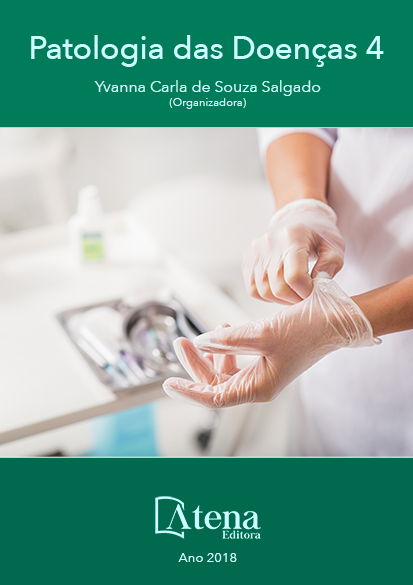
BACTÉRIAS PREDOMINANTES NAS INFECÇÕES RELACIONADAS À ASSISTÊNCIA À SAÚDE EM UMA UNIDADE DE TERAPIA INTENSIVA NO CONE SUL DE RONDÔNIA
As infecções relacionadas à
assistência à saúde (IRAS) são aquelas
adquiridas no período de internação hospitalar
que não estavam presentes ou em incubação
na admissão do paciente, podendo se
manifestar durante a internação ou após a alta
hospitalar. O objetivo deste estudo é analisar
os microrganismos predominantes nas IRAS
em uma Unidade de Terapia Intensiva (UTI) de
um hospital no interior do Estado de Rondônia,
identificar o perfil clínico-epidemiológico através
de busca em prontuário do paciente, tempo
decorrido entre a admissão e a ocorrência da
infecção e os prejuízos ocasionados por esta
infecção. A amostra foi composta por todos os
prontuários de pacientes que adquiriram IRAS
no ano de 2016, durante internação na UTI adulto, o que corresponde a 66 notificações
pela CCIH, sendo que alguns adquiriram mais do que uma infecção, totalizando 99
IRAS notificadas. Com relação ao tempo de internação na UTI, verificou-se uma média
de 43 dias. O sitio mais acometido nos pacientes foi o trato urinário (ITU) com um
total de 47,5% de todas as IRAS. Evidenciou-se que o microrganismo encontrado em
amostra isolada com maior prevalência foi a Acinetobacter baumannii em 28,3%. Em
relação aos danos causados, foi considerado com maior prevalência o óbito, registrouse
44,1%. As IRAS resultam em aumento da morbimortalidade, prolongamento do
tempo de internação, resistência aos antimicrobianos entre outros agravos, tornando
a infecção hospitalar um grande problema para o paciente e para a instituição. A
identificação dos principais microrganismos e o conhecimento dos agravos por eles
causados torna-se necessária para a implementação de medidas de prevenção e
controle, refletindo diretamente na segurança do paciente.
BACTÉRIAS PREDOMINANTES NAS INFECÇÕES RELACIONADAS À ASSISTÊNCIA À SAÚDE EM UMA UNIDADE DE TERAPIA INTENSIVA NO CONE SUL DE RONDÔNIA
-
DOI: Atena
-
Palavras-chave: Infecções relacionadas à assistência à saúde. Unidade de terapia intensiva. Microrganismo.
-
Keywords: Infections related to health care. Intensive care unit. Damage
-
Abstract:
The Health Assistance Infections (HAI) are those infections that the
patiente acquiries during the hospital’s internment or in their incubation. These infections
weren’t in the patiente before and may manifest during hospitalization or after a hospital
discharge. This study objective is identify the most kind of bacteria in the HAI in an
Intensive Care Unit (ICU) in a hospital localized in Rondônia; to identify the clinical and
epidemiological profile of the patient searching in their medical records and find out
the danger caused by this infection acording to the time elapsed between admission
and the occurrence of that. The sample consisted of all the patients who acquired HAI
in 2016, during hospitalization in the adult ICU, corresponding to 66 patients notified
by CHIC (Course for hospital infection control), and some of them acquired more than
one infection, so, it results in 99 in total. According to ICU stay, an average of 43 days
was observed. The most common site of patients was Urinary Tract Infection (UTI) is
a total of 47.5% of all HAI. It was evidenced acording to an isolated sample that the
micro-illustrate with the highest prevalence for an Acinetobacter baumannii in 28.3%.
Regarding the damages caused, it was considered with a higher prevalence of death,
44.1%. The HAI resulted in increased morbidity and mortality, prolonged hospitalization
time, resistance to antimicrobials among other diseases, making a hospital infection a
major problem for the patient and for the institution. The identification of microorganisms
principles and knowledge of the diseases caused by it, becomes necessary for an
implementation of prevention and control measures, directly reflects on patient safety.
-
Número de páginas: 15
- Teresinha Cícera Teodora Viana


